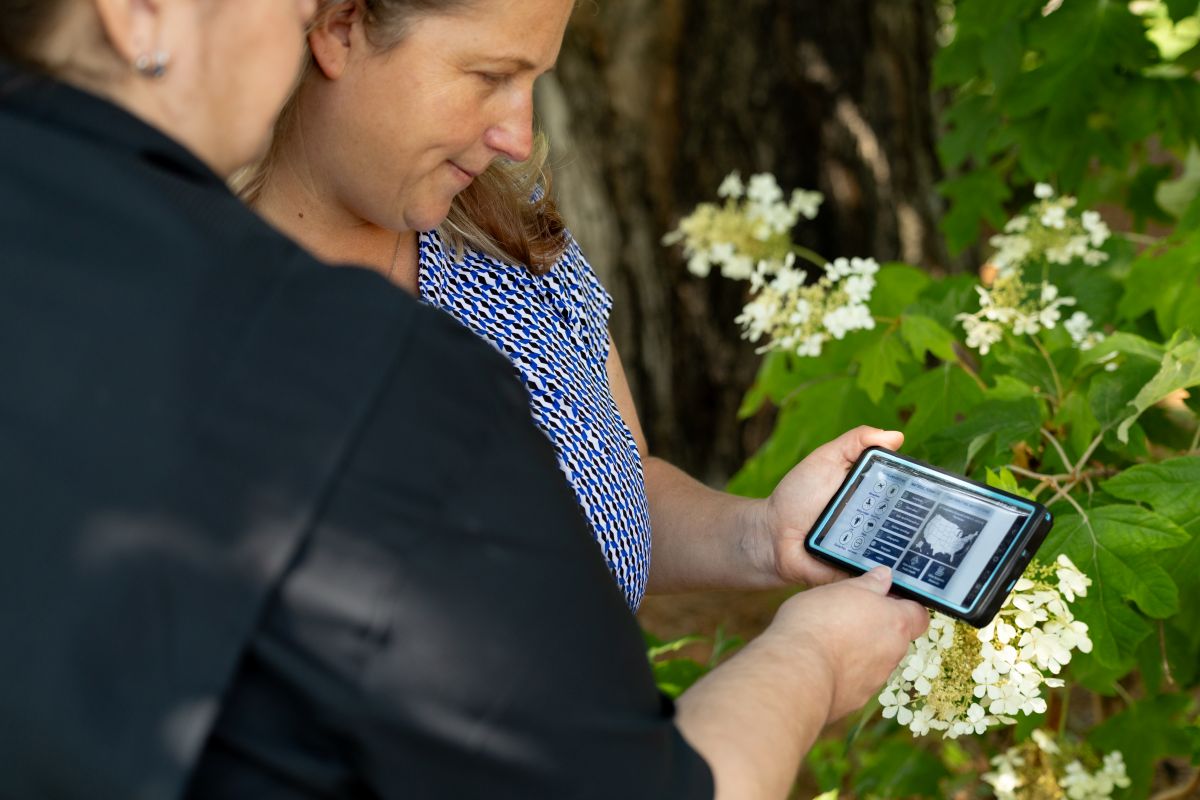
UTIA Contributes to Online Database of Information and Education Materials
KNOXVILLE, Tenn. – Summer is the season for ticks, mosquitoes and other insects carrying vector-borne diseases such as Lyme disease and West Nile virus that can pose a danger to humans, pets and livestock.
As the nation observes National Mosquito Control Awareness Week June 15-21, University of Tennessee Extension specialists and UT Institute of Agriculture researchers have more resources available to help educate the public and prevent the spread of disease. The VECTOR Library, which stands for Vector Education, Community and Training Online Resources, provides more than 1,400 educational materials from the Cooperative Extension System across the United States in a centralized online database.
The library was developed by the VectorEd Network, created through a Centers for Disease Control and Prevention grant, stands for Vector-Borne Disease Regional Training and Evaluation Center. It is led by Penn State in collaboration with five additional institutions including the University of Tennessee.
Becky Trout Fryxell, professor in the Department of Entomology and Plant Pathology and a member of the VectorEd Network, thinks Tennessee residents and visitors should be aware of the abundance of arthropods in our region that carry harmful diseases.

“Tennessee includes multiple ecoregions in the Ohio River Valley, and, in my opinion, a slightly more challenging vector-borne disease situation,” says Trout Fryxell. “We have blacklegged tick populations with Lyme bacteria spreading along the eastern region of the state, Gulf coast tick populations carrying Rickettsia bacteria, and an abundant population of Lone star ticks, which are associated with alpha-gal (red meat allergy) and ehrlichiosis. On top of that, West Nile virus is commonly found in the western region near the Mississippi River, and La Crosse virus is common in the eastern region,” she says. The West Nile virus and La Crosse virus are spread by mosquitos.
The online library is a valuable tool for Extension professionals, educators, public health officials, pest and vector management professionals, veterinary professionals, agricultural workers, and community members seeking authoritative information about vector-borne disease prevention and control. The database features advanced search options allowing users to filter by state, vector, target audience, product or material type, language, cost, and other metrics. Angela Tucker, vector and vector-borne disease training specialist with the UT Department of Entomology and Plant Pathology, was critical in the development of the library and adding new materials specific for Tennessee. “Building the database for the online library was the first step,” she says. “The exciting part, to me, is that anyone that uses the library has the opportunity to grow the library. There are several ways that individuals can contribute to the growth including submitting their content for evaluation and inclusion in the library or providing feedback on their search.”
“Vector-borne diseases are preventable and a community problem. People need to know that if a community prevents vector populations, they not only prevent bites but also prevent the onset of disease,” Trout Fryxell stresses.
The library contains several UT Extension publications and materials that focus on Tennessee, but users can access information from any state. “Global problems are local problems. In Tennessee we regularly have travel-associated cases of dengue fever and recent cases of malaria. Hopefully the materials relevant to other locations do not become relevant for us in Knoxville, for instance, but it is important to have them ready in case a situation arises,” Trout Fryxell adds.
To explore the VECTOR Library, visit www.vector-education.org.
Relevant UT Extension publications also are available online at utextension.tennessee.edu/publications. Some titles of interest include:
W 1293 Managing Container Mosquitoes
W 1295 La Crosse Virus Neuroinvasive Disease
W 1255 Longhorned Tick and Bovine Theileriosis Tennessee 2024 Update
PB 1303 Managing Pests Around the Home
The University of Tennessee Institute of Agriculture is comprised of the Herbert College of Agriculture, UT College of Veterinary Medicine, UT AgResearch and UT Extension. Through its land-grant mission of teaching, research and outreach, the Institute touches lives and provides Real. Life. Solutions. to Tennesseans and beyond. utia.tennessee.edu.